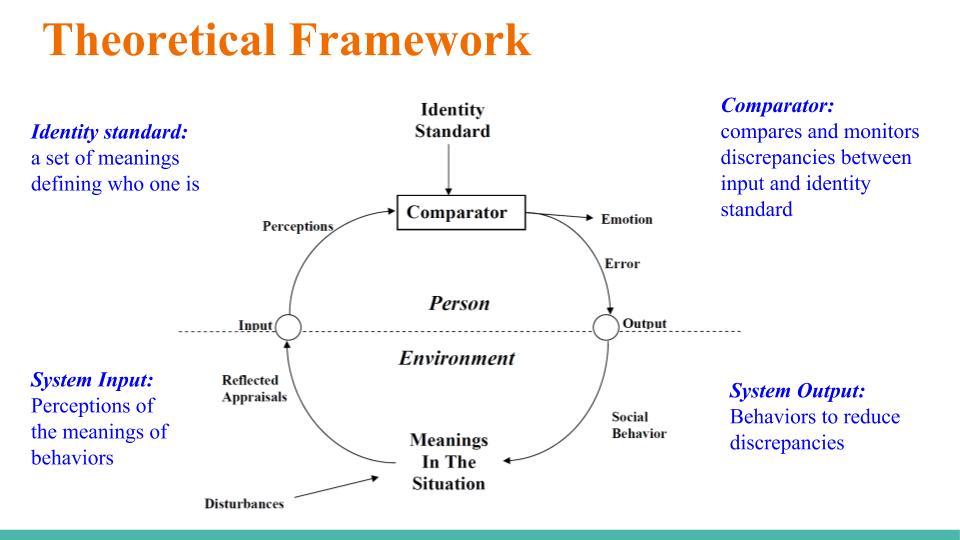About This Project
Despite the abundant research on identity development, we still do not know much about the process, or how identity develops. The Identity Control theory (ICT) is a new promising model that provides insights on the micro-processes of identity development. However, only a handful of studies applied this theory. This small-scale qualitative study is the first attempt to use ICT to explore the processes of racial and ethnic identity development.
Ask the Scientists
Join The DiscussionWhat is the context of this research?
Most research has focused more generally on assessing college students’ identity statuses, development trajectories, and how individual’s sense of identity is associated with various outcome variables. There is little research about the process of racial and ethnic identity development.
The ICT has been used to study the identity micro-processes of several different identity domains, such as career identity, moral identity, and individual’s self-concept. It suggests the identity process operates as a self-regulating control system that works to reduce the discrepancies between the meanings held in one’s identity standard and the meanings perceived in a situation. It has not been used to study racial and ethnic identity development.
What is the significance of this project?
Previous research have explored "critical" experiences that contributed to college students' racial and ethnic identity. However, it remains unclear what made the incident “critical” and how the identity process plays out in those incidents. The findings of this study will provide insights on the identity process within the individual and more clues about how specific actors or experiences contribute to individuals’ racial and ethnic identity. Results from this study also can extend the theory substantively by providing empirical knowledge and evidence for future applications of ICT and forming the basis for a follow-up investigation exploring how individuals’ racial and ethnic identity changes on a daily basis as they interact with others.
What are the goals of the project?
This qualitative study is a first attempt to apply ICT to study racial and ethnic identity development. Using a narrative interview protocol, I will ask participants to recall and share at least 3 experiences that they think were critical to their racial and ethnic identity. 20 individuals and 3 experiences from each individual will give me enough data for achieving saturation.
The theory suggests that different domains of identities operate similarly. It is hypothesized that racial and ethnic identity will follow the control system that ICT suggested. I will use a hybrid combination of inductive and deductive coding. Inductive coding is used to explore the data; deductive coding will be used to "test" the hypothesis.
Budget
The proceeds from this crowdfunding effort go toward payments to students of color for their participation. The current goal of $335 is in its minimal form (covering the payment for 20 participants and other crowdfunding fees). Your $15 can cover one 1-hour interview with one student
I would love to interview more students to increase its validity and also have some funding to cover transcription cost. With the time constraints, I will use an online transcription service to transcribe all interviews ($265 is the expense for transcribing all interviews).
A larger sample size will allow me to interview enough individuals to get sufficient data for saturation. This qualitative study is the foundation of a bigger quantitative study. I will calculate the probability of one experience identity disturbance, defense and change (main components of ICT) and use them to calculate the sample size needed for the quantitative confirmatory study.
Thanks in advance for your support!
Endorsed by
 Project Timeline
Project Timeline
We will recruit and interview 20 participants in February. We plan to complete data analysis by May. We intend to share results in August. All parts of the project will take place in 2019.
Data analysis consists of both inductive and deductive coding. I will take an inductive approach to explore the data, and look for patterns in the data using thematic analysis. Then, deductive coding consists of formulating a coding scheme based on the literature on ICT.
Feb 04, 2019
Start interviewing participants
Feb 07, 2019
Project Launched
Apr 29, 2019
Complete data collection
May 01, 2019
Start data analysis
Jul 15, 2019
Complete data analysis
Meet the Team
Pauline Ho
Hi, my name is Pauline Ho, a second year PhD student in the Human Development area of the Educational Psychology department at the University of Wisconsin-Madison. My research focuses on understanding the process of achieving a coherent sense of identity among college students of color. In addition to research, I have a variety of experiences working with students, including peer mentoring, scholarship advising, and academic tutoring.
Additional Information

Project Backers
- 10Backers
- 116%Funded
- $390Total Donations
- $39.00Average Donation

